Can I Use a Car Battery in My Travel Trailer – Find Out!
Yes, you can use a car battery in a travel trailer, but it’s not ideal for long-term use. Car batteries are designed for short bursts of energy, like starting the engine, whereas travel trailers require consistent, long-lasting power for appliances.
I once tried using my car battery to power small lights and it worked, but it drained quickly and couldn’t keep up with larger appliances like the fridge.
Switching to a deep cycle battery made a world of difference, as it was built for slow, steady power consumption—perfect for my off-grid camping trips.
Understanding the Role of Batteries in Travel Trailers:
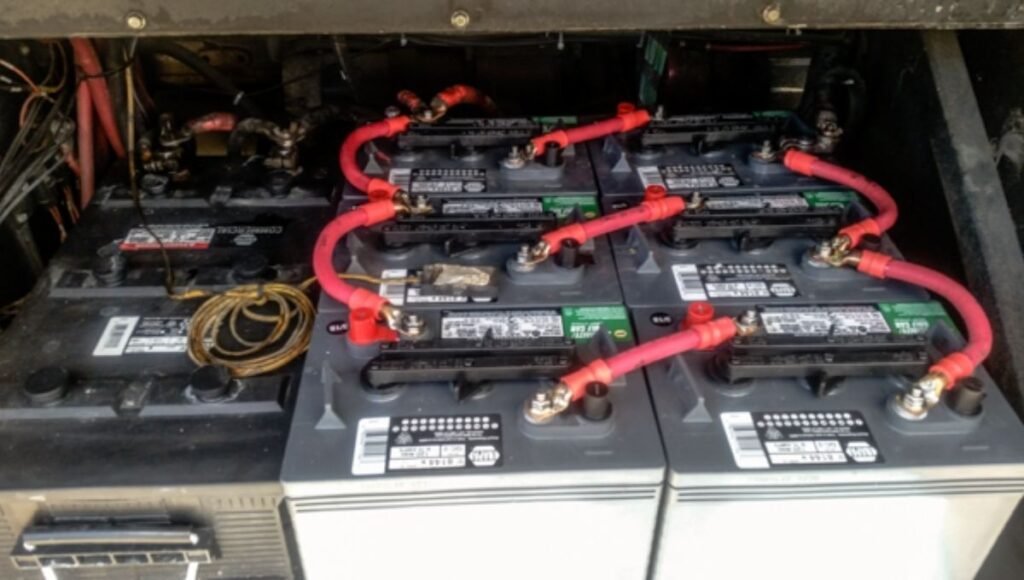
Batteries are the unsung heroes of modern travel trailers. These powerhouses ensure that your mobile lifestyle remains comfortable and functional, especially when you’re off-grid or camping in remote locations.
Without a battery, your trailer’s essential systems from lighting to refrigeration would cease to function. But the role of batteries in travel trailers extends beyond simply powering appliances; they are the lifeblood of your home on wheels, enabling both convenience and independence.
Why Your Travel Trailer Needs a Reliable Power Source:
Travel trailers operate as mobile homes, which means they rely heavily on power to sustain your on-the-road lifestyle. From keeping your refrigerator cool to ensuring your lights and water pump function properly, a dependable power source is non-negotiable.
Without a reliable battery, your trailer can turn from a cozy sanctuary into a powerless shell. Additionally, essential equipment like the furnace, entertainment systems, and even safety features like smoke detectors all depend on a steady flow of electricity, making a trustworthy battery essential for comfort and safety.
Common Types of Batteries Used in Travel Trailers:
There are several battery types commonly used in travel trailers, each tailored to meet specific energy demands. The most common choices include lead-acid deep cycle batteries, AGM (Absorbent Glass Mat) batteries, and lithium-ion batteries.
Deep cycle batteries are designed to provide a steady output of power over a long period, making them ideal for running various appliances and devices.
AGM batteries offer better performance, requiring less maintenance and being more resistant to vibration—important factors when towing a trailer.
Lithium-ion batteries represent the high-tech option, boasting lighter weight, quicker charging times, and longer lifespans. Choosing the right battery depends on your trailer’s power needs and how often you plan to rely on battery power.
read also: What Gauge Wire to Connect 12V Batteries in Parallel – Complete Guide!
Car Batteries vs. Deep Cycle Batteries: Key Differences
What Makes a Car Battery Different?
Car batteries and deep cycle batteries may look similar on the outside, but their internal designs are vastly different. A car battery is built to deliver short bursts of high energy, typically for starting the engine.
Once the engine is running, the alternator takes over, recharging the battery and powering the vehicle’s electrical systems. Because car batteries are not made to provide continuous energy over long periods, their lifespan shortens drastically when used in such applications.
The high-current design of a car battery makes it unsuitable for the slow and steady power draw that a travel trailer requires.
The Importance of Deep Cycle Batteries for Travel Trailers:
Deep cycle batteries, on the other hand, are engineered for endurance. They provide a consistent flow of power over extended periods, which is exactly what a travel trailer needs to function off-grid.
These batteries can be deeply discharged and recharged multiple times without suffering significant wear. For this reason, deep cycle batteries are considered the standard for RVs and travel trailers.
Their ability to handle the slow, steady power demands of appliances like lights, fans, and refrigerators makes them essential for sustained off-grid living.
Can a Car Battery Power a Travel Trailer?
How a Car Battery Performs in a Travel Trailer:
In theory, a car battery could power your travel trailer, but its performance would be limited and short-lived. Car batteries are designed for brief, high-energy output rather than long-term energy supply.
You might be able to use it to power some low-draw devices for a short period, but it would quickly become drained if tasked with running appliances that demand steady, continuous power.
Essentially, car batteries are not designed to be used in off-grid scenarios where you need hours of uninterrupted energy.
Potential Issues with Using a Car Battery:
Using a car battery in a travel trailer can lead to numerous issues. Firstly, since car batteries are not designed for deep discharge, using them this way can significantly shorten their lifespan.
Repeated deep cycling can cause the battery to lose its ability to hold a charge, leaving you stranded without power.
Additionally, car batteries may overheat or fail under prolonged use, which could result in electrical system malfunctions. For these reasons, car batteries are far from an ideal solution for powering your travel trailer.
Advantages and Drawbacks of Using a Car Battery:
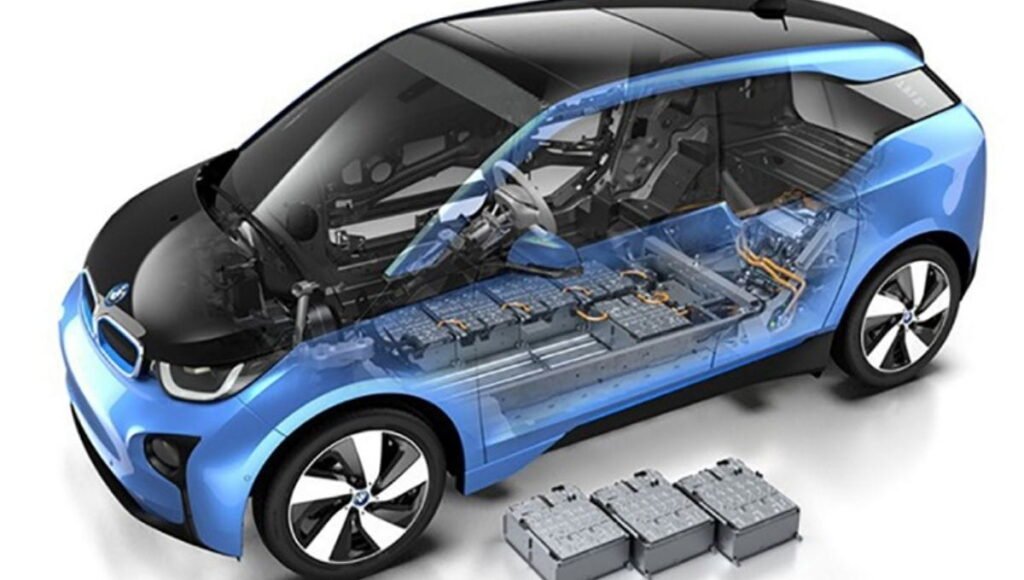
When a Car Battery Might Work for Short-Term Use:
If you’re in a pinch, a car battery might suffice for short-term use or emergency situations. For example, if you need to power a few small electronics or lights for a couple of hours, a car battery could get the job done.
However, this is not a sustainable option for long-term or frequent use. Short bursts of low power demand can be handled, but using a car battery for anything more substantial will likely result in failure or inefficiency.
The Long-Term Impact on Performance and Battery Life:
Using a car battery for continuous power in a travel trailer will almost certainly result in diminished performance over time. Car batteries are not designed to be deeply discharged, and frequent deep cycling will lead to premature wear.
Over time, the battery’s ability to hold a charge will degrade, leaving you with less power when you need it most. Additionally, the strain placed on a car battery when powering larger appliances can lead to overheating and potential damage, reducing its overall lifespan.
read also: When a Car Battery Tests Good but Still Fails – A Common Reason!
Power Demands of a Travel Trailer: Can a Car Battery Keep Up?
Comparing Power Needs: Trailer Appliances vs. Car Electrical Systems
A travel trailer’s power demands far exceed those of a standard car’s electrical systems. While a car battery only needs to power the engine starter and a few small electronics, a travel trailer relies on its battery to run refrigerators, fans, lights, water pumps, and more. The draw on a trailer battery is continuous, with some appliances requiring significant amounts of power for extended periods. A car battery simply isn’t equipped to handle the long-term, steady output needed for such applications.
How a Car Battery Handles Extended Use:
When put to extended use, a car battery will struggle to keep up. Prolonged energy discharge can lead to overheating, causing the battery to work inefficiently or even fail altogether.
Furthermore, car batteries are not designed to recharge quickly after being deeply discharged, meaning you could be stuck waiting for hours or even days for the battery to regain enough power to be functional again. This makes them impractical for anything beyond brief, emergency usage in a travel trailer.
Safety Considerations When Using a Car Battery in a Travel Trailer:
Overheating, Discharge Rates, and Potential Damage:
One of the biggest risks of using a car battery in your travel trailer is the potential for overheating. Car batteries are not designed for the high levels of discharge that trailers require, which means they can overheat quickly when overworked.
This can lead to damage to both the battery and the trailer’s electrical system. Additionally, car batteries discharge at a faster rate when subjected to continuous use, increasing the risk of failure.
Risk of Draining the Battery and Leaving Your Vehicle Stranded:
Using your car’s battery to power your trailer comes with the risk of leaving your vehicle without the power needed to start. Once the battery is drained, you might find yourself stranded, unable to move either your car or your trailer.
This risk, combined with the inefficiency of car batteries for such a task, makes them a poor choice for powering a travel trailer in any scenario where long-term use is required.
Alternative Battery Options for Travel Trailers:
Why Deep Cycle Batteries Are the Better Choice:
Deep cycle batteries are specifically designed for the kind of slow, steady discharge that travel trailers require. Unlike car batteries, they can be deeply discharged and recharged numerous times without significant wear.
They are built to last longer and perform more reliably in off-grid situations, making them the preferred choice for anyone looking to power a travel trailer.
Exploring Lithium-Ion and AGM Batteries for Travel Trailers:
Lithium-ion and AGM batteries represent the pinnacle of modern battery technology for travel trailers. Lithium-ion batteries are lightweight, offer quicker recharge times, and last significantly longer than traditional lead-acid batteries.
AGM batteries, while heavier, are maintenance-free and resistant to vibration, making them ideal for rugged travel conditions. Both options provide superior performance compared to car batteries, ensuring that you can meet the power demands of your trailer without worry.
Tips for Choosing the Right Battery for Your Travel Trailer:
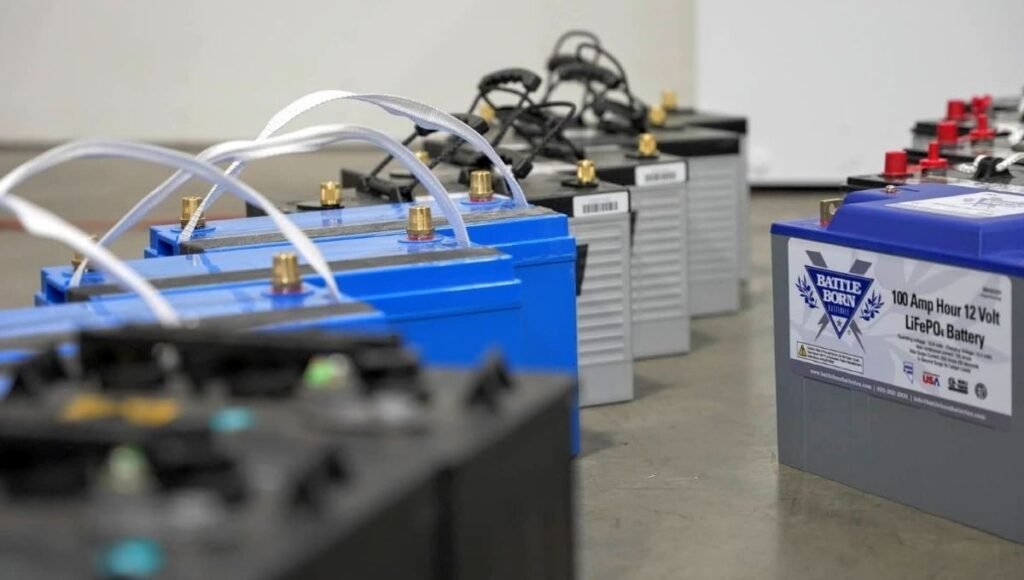
Determining the Best Battery Based on Your Power Needs:
When selecting a battery for your travel trailer, it’s crucial to consider your specific power needs. Start by assessing the number and type of appliances you plan to run, as well as how often you will be relying on battery power.
Once you have a clear picture of your energy consumption, you can choose a battery that meets those requirements, whether it’s a deep cycle, lithium-ion, or AGM battery.
How to Properly Maintain Your Travel Trailer Battery:
Proper maintenance is key to ensuring that your travel trailer battery performs efficiently over time. Regularly check the battery’s water levels, clean the terminals to prevent corrosion, and store the battery in a cool, dry place when not in use.
For lithium-ion and AGM batteries, minimal maintenance is required, but regular inspections can still help extend the lifespan of your power source. Proper charging habits will also go a long way in preserving the health of your battery, ensuring it’s ready to power your next adventure.
read also: Why the Battery Light Stays On When Ignition Is Off in Silverado – Here’s Why!
FAQ’s
1. Can I use a car battery in my travel trailer?
Yes, but it is not ideal for long-term use. Car batteries are designed for short bursts of energy, not the continuous power needed for a trailer.
2. What are the risks of using a car battery in a travel trailer?
Car batteries can overheat, lose charge quickly, and be damaged when used for prolonged periods in a trailer, leading to reduced lifespan and potential system failures.
3. When is it okay to use a car battery in a travel trailer?
A car battery might work for short-term or emergency use, such as powering small devices for a few hours, but it’s not a sustainable option.
4. What’s the best type of battery for a travel trailer?
Deep cycle batteries, including AGM or lithium-ion, are ideal as they provide consistent, long-lasting power suitable for off-grid living.
5. How does a car battery compare to a deep cycle battery?
Car batteries deliver short bursts of power, while deep cycle batteries are built for slow, steady discharge, making them better suited for travel trailer needs.
conclusion:
In conclusion, while you can use a car battery to power your travel trailer in a pinch, it’s far from ideal for sustained use. Car batteries are designed for short, high-energy bursts, not the continuous, steady power required by travel trailers. For consistent and reliable performance, a deep-cycle battery—whether lead-acid, AGM, or lithium-ion—is the better choice. These batteries are engineered to provide long-lasting energy, making them essential for off-grid or extended camping trips. Investing in the right battery ensures comfort, safety, and longevity for your travel trailer’s power needs.
Read Also:
How a Car Battery Can Affect Your Immobilizer System – Fix Issues Fast!
Car Alarm Goes Off When Charging Battery – Common Causes!
Does Leaving USB Plugged in Car Drain Battery – Here’s the Answer!
Can I Run 2 Amps Off a Single Car Battery – The Truth Revealed!
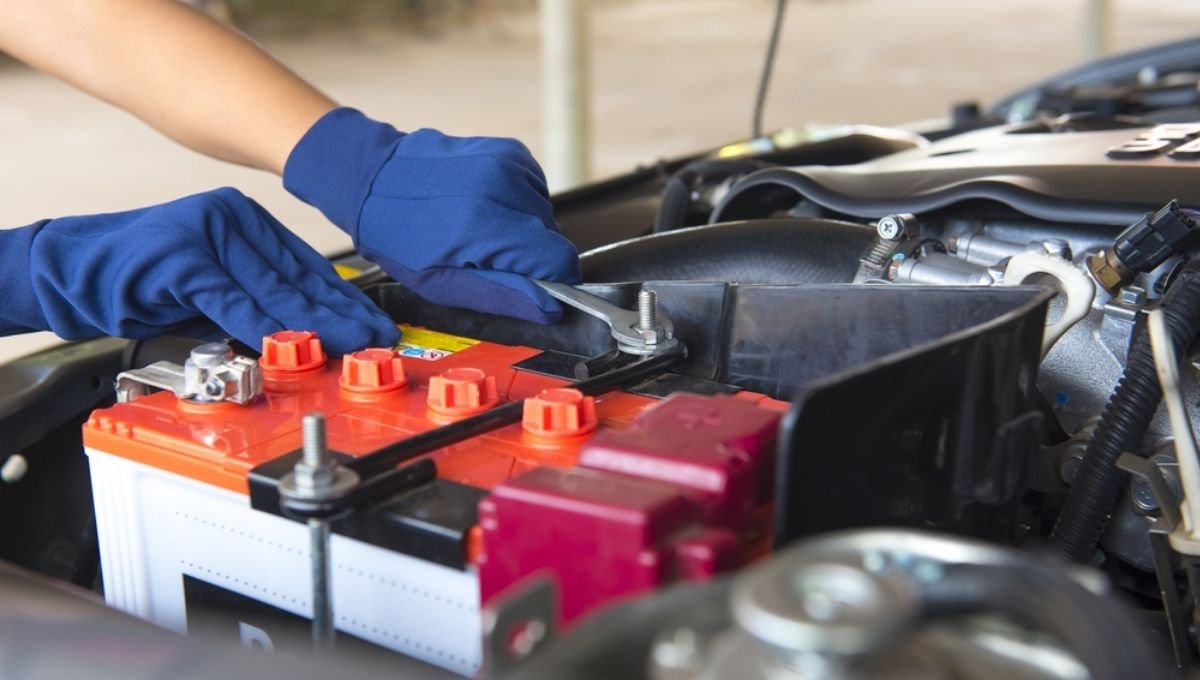

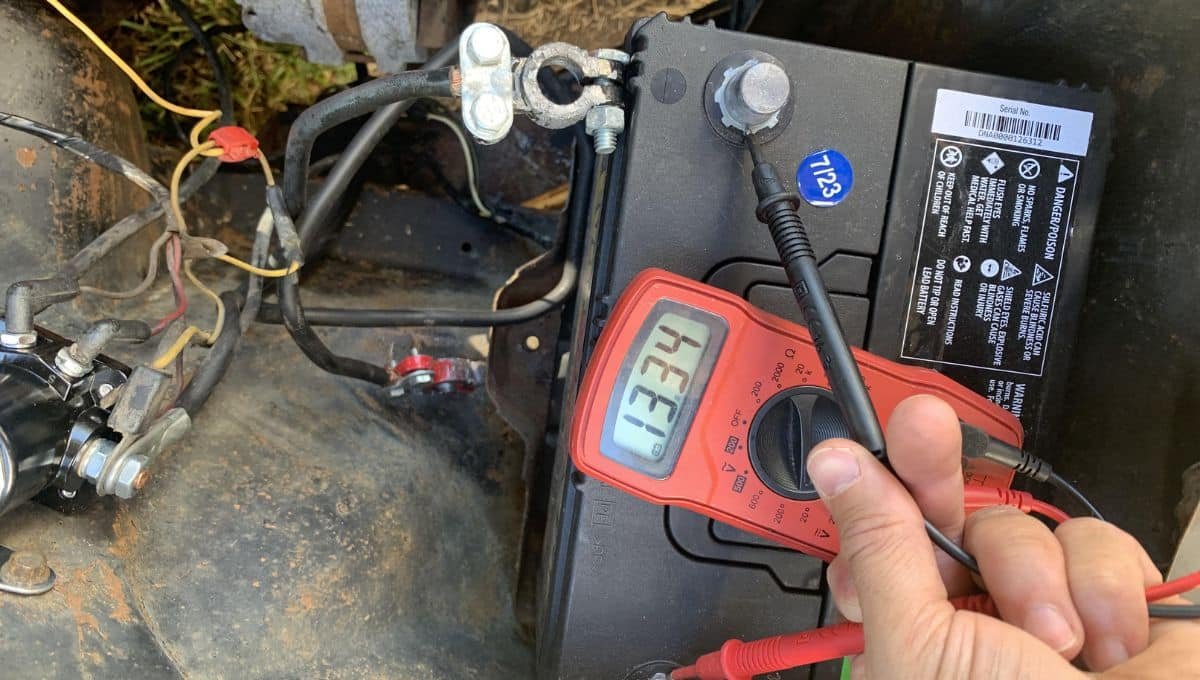
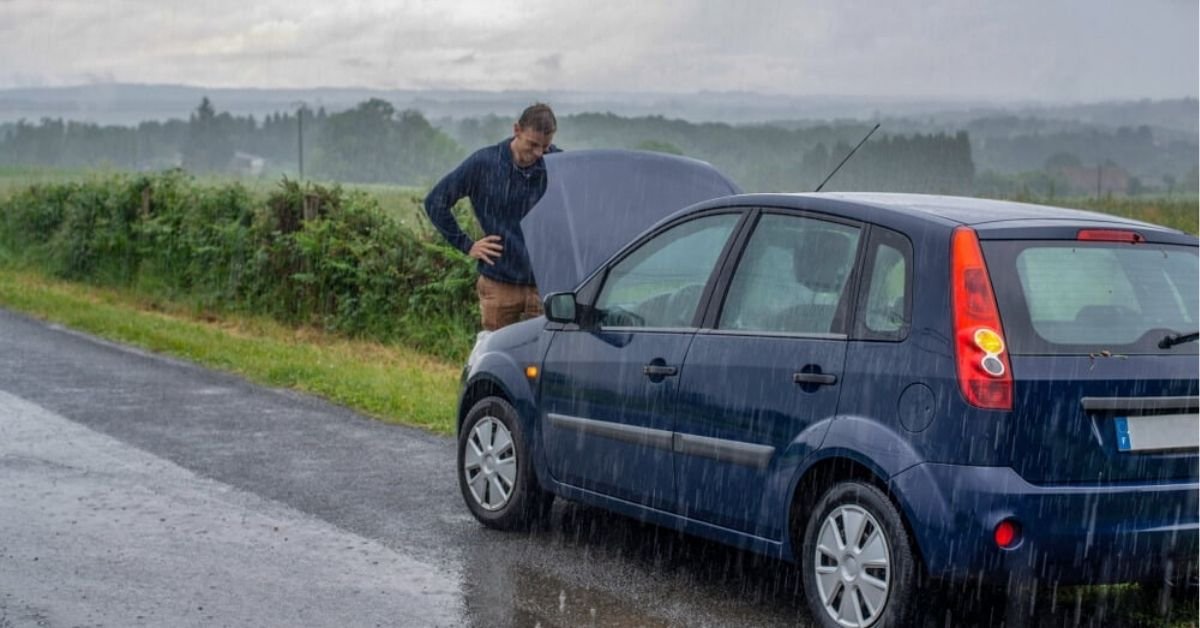

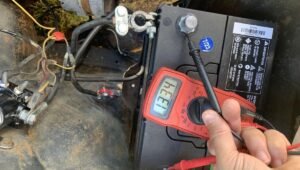






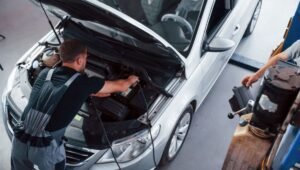
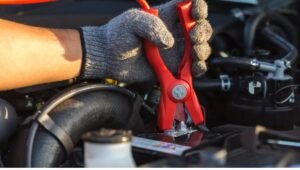
Post Comment